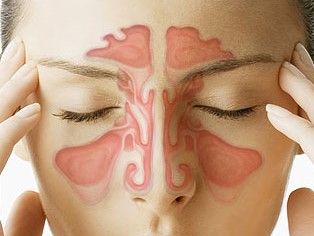Sinus issues and Meniere’s Disease
Table of Contents
Problems with sinuses have been linked to triggers or possibly even a cause of Meniere’s Disease.

Denise, a friend of Meniere’s Help recently published a very good post on her blog regarding sinuses and how to safely clear them. Steaming is preferable to saline sprays.
Denise says that if she used any sort of saline spray she would get ringing in the ears badly and dizziness . She reminds us that saline sprays have a great potential to drift straight to the ears! This is something we totally do not want because it contributes to the vicious cycle of Meniere’s symptoms! She says she is no longer fooled when they say that saline solution is safe because there is no ‘so called’ medication ingredients. I found this very eye-opening but not surprising: http://www.medicinenet.com/sodium_chloride-nasal_spray/page2.htm#SideEffects
Denise has some very good advice in her post. When we have congestion in the sinuses we may think there is something inside. However, sometimes it is just the swelling that occurs due to infection, irritants, or histamine reactions.
Read a much more in depth article on sinuses and allergies here: Stopping Meniere’s disease symptoms during allergy season.
The safer alternative to nasal sprays when you have Meniere’s Disease
Allergies from pollen in the air and sinus problems seem to be a factor with many people. Hay fever and other airborne allergens, causing inflammation around the nasal passage and sinuses and clogging up the ears with pollen would seem an obvious candidate and many people do seem to have problems with this.
The sinuses and tonsils are the first line of defense for your immune system. The tonsils pick up bacteria and prevent it from going further into your body. The immune system memorizes the bacteria and now has a ready made army of cells to send to eliminate that bacteria the moment it appears again.
In the case of sinuses, these are filters to stop unwanted dusts and allergens into the body. When your sinuses are blocked or running, they are doing their job. To do their job, they must be kept moist.
Most sinus medicines prevent them doing their job in order to make you more comfortable. However if the sinuses are not filtering out the allergens, they can proceed and do damage deeper in the body.
Wearing a mask during allergy seasons and steaming the sinuses clear regularly can help. Steaming is preferable to masks. Masks can hold bacteria that should be exhaled. Wearing masks for too long can result in bacterial infections.
You can steam the old fashioned way, bent over a bowl of hot water with a towel over your head to stop the steam escaping. Or you can use a personal steamer inhaler.
Click here to read Managing Meniere’s Disease
Click here to read The Need for Balance – Dealing with the Causes of Meniere’s
Help other sufferers. What is your experience with sinuses and Meniere’s disease? Tell us all about it in the comments box below or email Mike at meniereshelp@gmail.com
Related articles:
References/Further reading: